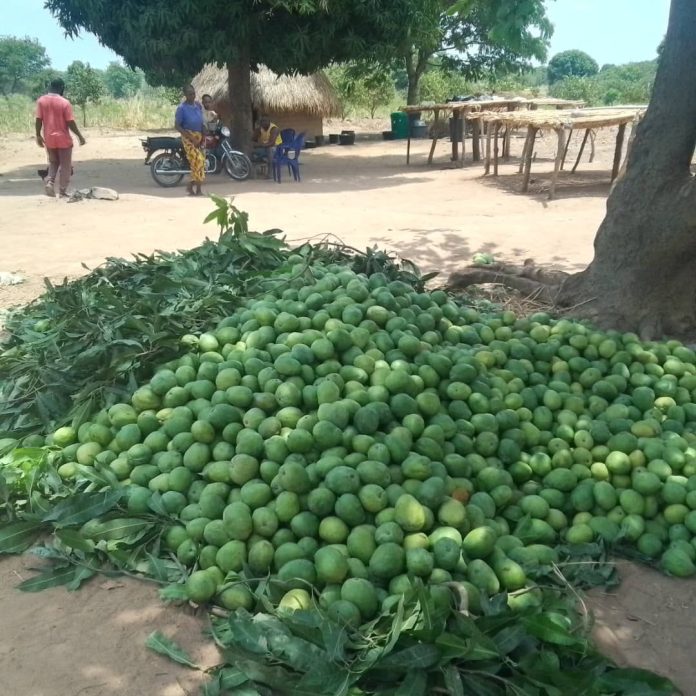LAGOS, NIGERIA — Despite growing excitement around agricultural technology (AgTech) as a supposed game-changer for Africa’s food systems, Nigerian agribusiness leader Deola Balogun, Chief Operating Officer at Limlim Foods Production Ltd, says technology cannot rescue the nation’s struggling agricultural sector — at least not yet.
In a widely discussed LinkedIn post, Balogun argued that Nigeria’s agricultural crisis is rooted in fundamental infrastructure failures rather than a lack of innovation.
“AgTech will not save Nigerian agriculture. Not today. Maybe not soon,” Balogun began. “The problem isn’t technology — it’s what we’ve failed to fix before expecting technology to perform miracles.”
Rotting Abundance in the North and South
Drawing from her direct experiences in agro-processing, Balogun painted a vivid picture of systemic inefficiencies that cripple farmers across the country.
“In Kano, farmers grow tomatoes that could feed half of West Africa. Yet every glut season, up to 45 percent of those tomatoes never make it to the market,” she said. “They rot on the roadside because buyers never came. Or worse, they’re dumped into nearby bushes because the basket costs more than the price offered.”
According to her, this kind of waste is not limited to the northern region.
“Down south in Ogbomoso, mangoes fall like rain — sweet, abundant, and wasted. Nigeria produces over 800,000 metric tons of mango every year, yet more than half goes bad before any processor can reach it,” she added.
For Balogun, these examples underscore a painful irony: Nigeria’s agricultural losses are not due to poor yields, but to the absence of basic infrastructure like good roads, reliable storage, and efficient logistics.
“Not because we lack sunlight or soil,” she noted, “but because one bad road can destroy an entire harvest.”
When the Power Fails, Production Stops
Balogun also highlighted how erratic electricity supply and rising fuel costs are paralyzing agro-processing operations.
“No power equals no production,” she said. “Diesel at ₦1,600 per liter decides whether food gets value-added or wasted. A machine worth millions sits idle because the electricity grid was down or simply not supplied for the entire day.”
According to her, the lack of dependable energy has turned what should be profitable ventures into survival battles for local processors.
The Disconnect Between Innovation and Reality
Balogun criticized the growing enthusiasm for high-tech agricultural solutions that fail to address the on-ground realities of rural farmers.
“In air-conditioned halls in Lagos and Abuja, we gather to launch ‘game-changing’ apps built for farmers who can’t charge their phones, not to talk of owning smartphones,” she remarked. “We’re very busy pitching blockchain to people who don’t even have bank access.”
She warned that while technology can enhance agriculture, it cannot replace the foundational elements that make farming viable.
“Technology is not the villain,” she emphasized. “But let’s stop pretending it’s the hero. Because until the basics work, AgTech will remain a shiny distraction, not a lifeline.”
Fix the Basics Before the Buzzwords
In her view, the path to agricultural transformation begins not with automation or artificial intelligence, but with roads, power, and trust.
“Our problems are stubbornly simple,” Balogun said. “Give us roads that don’t ruin produce, power that’s affordable, cold chains that save food instead of excuses, financing that doesn’t punish farmers for being rural, and markets that reward the hands that feed us.”
She explained that even modest investments in processing infrastructure could yield dramatic results for rural economies.
“Simple processing can multiply the value of a mango by ten,” she said. “But first, the mango must arrive — and it must be fresh.”
A Call for Pragmatic Reform
Balogun’s reflections come at a time when Nigeria is grappling with soaring food prices, worsening inflation, and mounting post-harvest losses estimated at over ₦3.5 trillion annually. Experts say her comments reflect a growing consensus that digital innovation must go hand-in-hand with foundational infrastructure reforms.
In closing, Balogun offered a sequence that policymakers and investors should take to heart:
“Before we automate, fix logistics. Before blockchain, fix trust. Before any smart sensor, fix the system,” she urged.
For now, she believes AgTech remains “the wrong hero for a story still fighting for its basics.”
“We start by building the foundation,” Balogun concluded, “then scaling the future. Only then will Nigerian farmers finally win — and processors like us will truly thrive.”




